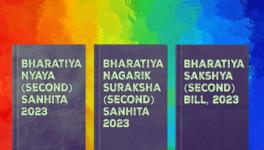Intimidation, Illegality Afflict Right to Information in Gujarat

It is 2022, almost seventeen years since the Right to Information Act, 2005 (RTI Act) was passed. Albeit, in a functional democracy, the emerging field realities would have resulted in legislative changes that strengthened the law. However, our experience tells otherwise. This article attempts to throw light on the systematic weakening of the RTI Act over time and share an experiential story of how an RTI appellate authority in Gujarat imposed a fine of Rs.10,000 on an applicant for simply exercising their right to information.
It is argued that it is also indicative of larger patterns of intimidation and illegalities that exist in the implementation of the RTI Act and the long journey ahead for the right to information to become a basic fundamental right in India.
To begin with fundamentals, there is established jurisprudence by way of the PUCL case, Raj Narain case, and notably through SP Gupta case where Right to Information is recognised as a fundamental right. It was ruled in the SP Gupta case that, “The concept of an open Government is the direct emanation from the right to know which seems implicit in the right of free speech and expression guaranteed under Article 19(1)(a). Therefore, disclosures of information regarding the functioning of the government must be the rule.”
Even before the RTI Act was introduced in 2005, the Supreme Court ruled in 1976 that Article 19(1)(a), in addition to guaranteeing freedom of speech and expression, guarantees the right to receive information on matters concerning public interest.
Despite such strong jurisprudence in place, over the years, the RTI Act has been rendered powerless due to major reasons like the narrow interpretation of the law by PIOs and courts, inordinate delays in filling up of vacancies and non-appointment of information commissioners despite intervention, the RTI amendment Act 2019 (hereinafter 2019 amendment) which tampered with the independent spirit of this legislation, a huge backlog of cases and increasing violence against RTI Activists.
Research conducted by Satark Nagrik Sangathan and the Centre for Equity Studies for the year 2018-19 shows that less than 45% received the information they had sought, but of the 55 per cent who did not receive the information, less than 10 per cent filed appeals. One of the main reasons for this abysmal state of RTI is the lack of penalisation on erring PIOs for their failure to respond to RTI applications correctly and in time despite having penal provisions in place. Adding to the trouble, the RTI Amendment Act of 2019 killed the autonomous spirit of this legislation by amending Section 13, 16 and 27 of the RTI Act, 2005.
In the original Act (before the 2019 amendment), the term for the Chief Information Commissioner and an Information Commissioner (of Center as well as States) was fixed for five years (or until the age of 65 years, whichever is earlier). But the 2019 amendment changed it to “such a term as may be prescribed by the central government.” Likewise, the 2019 amendment also provided that the salary and allowance and other service conditions of the Chief Information Commissioner and an Information Commissioner (of Center as well as States) would be “as prescribed by the Central Government” - both changes paving the way for excessive delegation and concentration of power at the Center.
Section 13 of the original Act (before the 2019 amendment) provided that the salaries and allowances and other terms and conditions of service of the Chief Information Commissioner and information commissioners to be the same as that of the Chief Election Commissioner and election commissioners, respectively- which was also equivalent to the judges of the Supreme Court. The real strength and independence of the information commissioners came from these provisions - which got destroyed by the 2019 amendment that made them yet another chair in the bureaucracy.
It is pertinent also to note that the 2019 amendment was passed by violating the 2014 pre-legislative consultation policy, which clearly states that pre-legislative scrutiny must take place before the final drafting of the bill is decided and is introduced in the Parliament. This involves giving a reasonable opportunity for the public to raise objections - which did not happen for the introduction of the 2019 amendment Act. Overall, the Center gave itself the unfettered authority to decide information commissioners' tenure, terms, and salaries through these arbitrary actions. This strips away their independence makes them walk on eggshells- always fearful of government sanctions. These factors also continue to operate as a strong deterrent against public accountability and transparency -which are the building blocks of any democracy.
HIMMAT NAGAR CASE
Eight months ago, an application was filed under Sec.6 of the RTI Act with the Public Information Officer (PIO) of District Court, Sabarkantha. The information requested was the cause list of fast track courts, and special courts constituted under the Protection Of Children from Sexual Offences Act, 2012, Scheduled Caste and Scheduled Tribe (Prevention of Atrocities) Act, 1989, Protection of Women from Domestic Violence Act, 2005 and all Bail related cases (under Chapter 33 of Code of Criminal Procedure, 1973) listed in the District and Sessions Court during the first COVID-19 lockdown period (2020). This information was sought to understand the functioning of the lower judiciary and monitor whether or not priority cases (that affect the right to life and liberty of individuals) were justly listed and disposed off accordingly.
However, this application was rejected by the PIO by stating that the information sought (i.e. cause list) was not considered "information on record" or public information and, for these reasons, cannot be provided. This is, in fact, an incorrect understanding of the law based on which the applicant was arbitrarily denied information. It has been clearly held in the Manish Khanna case (Manish case) that records like cause list, even though temporarily maintained, come within the purview of "Record" under Sec 2(f) of the RTI Act and that the applicant is entitled to copies of the cause lists even though their existence is transitory.
It was held that as long as something existed, it was decidedly "information" under the RTI Act for that period and that the applicant must be allowed access to the cause list(s) for any given period when these were in the control of the public authority or any of its officials even if no record of such cause list is maintained thereafter.
During the appeal (filed by the applicant under Sec. 19 of the RTI Act), reliance was placed on the Manish Case to allow the request for information. However, the appellant faced severe hostility and intimidation from the appellate authority, who also alleged baseless mala fide motive for filing such an RTI application.
It is relevant to note that this RTI application was filed during the challenging COVID-19 times and when cyclone Tauktae wreaked havoc in coastal Gujarat. Since the applicant and their team were engaged in providing legal aid to victims of cyclone Tauktae, there were on-ground connectivity issues during the online appeal hearing- which was duly informed to the appellate authority. Regardless of the applicant's placement, the appellate authority further harassed the appellant for having network connectivity issues and attending the agricultural field hearing. The appellate authority went on to say, “You damn farmer, you’re attending the hearing from the field and have no respect for this court.”
This reflects the judiciary's attitude when it comes to the right to information applications filed by citizens in general and more so towards citizens who may not have or who are perceived not to have access to online video conferencing infrastructure. During a time when the digital divide is exacerbated by the increasing dependence on technology for everyday things and even basic survival (like vaccines), expecting etiquettes like attending the RTI hearing through video conferencing from a proper office set up is an unfair bureaucratic expectation that stems from ill-informed grass-roots realities of India.
Finally, it is also highly unbecoming of someone in power, especially like the appellate authority for RTI applications at the District level.
Following this, a request was made to hold a physical hearing instead, hoping that the appellate authority would hear the applicant properly this time. But from the time the application was called out till it was dismissed, the process was nothing short of an acute violation of the “audi alteram partem” principle (which means, “let the other side be heard as well”). The authority harassed the applicant by repeatedly asking the reason for filing the application- which is a clear violation of Sec. 6 (2) of the RTI Act, which states that the applicant seeking information shall not be required to give any reason for requesting the information.
The appellate authority went on a step further and said that the applicant had no right to seek information that monitored the court's functioning. The illegality did not stop there; the authority went on and imposed INR 10,000/- like a fine to deter the applicant and similar future applicants and applications. It is vital to note that neither the RTI Act nor the Gujarat High Court (Right to Information) Rules 2005, authorise a public authority to impose costs on an applicant. The RTI application process is not akin to a regular court hearing, and the appellate authority does not have the power to impose fines.
Information like cause lists are integral to establishing public accountability and should have, in fact, been proactively disclosed under Section 4 of the RTI Act by Himmat Nagar District Legal Services Authority's (DLSA) PIO. As the appellate authority hearing this matter, the District Judge should have ordered the PIO to proactively disclose the information requested to keep the spirit of the RTI Act intact. By not proactively disclosing such crucial information, the PIO created significant barriers to the effective implementation of the RTI Act. But what transpired was indeed far from this legitimate expectation. Over and above imposing illegal fines (amounting to Rs.10,000/- ) on the appellant for requesting information that should have been proactively disclosed, the public authority revealed the applicant's name, address, and contact details to the local newspaper to serve as a deterrent.
The matter got published as a news item - 'RTI applicant fined with INR 10,000 for misuse of RTI Act. Not only is this a severe violation of the right to privacy, but it also unfairly intimidates the appellant and RTI applicants in general from pursuing procedural remedies for denial of public information.
Aggrieved by the appellate authority's action and order denying information, the appellant filed a complaint under Sec.18 (1) (f) of the RTI Act, with the Gujarat Information Commission (GIC) stating the entire case at hand. Following this, the GIC issued instructions to the appellate authority, Himmat Nagar, to file their response within the stipulated time, which has not happened yet. For 'part compliance' with the appellate authority's order, the applicant sent a cheque worth Rs 10,000/- and mentioned that a complaint is pending with the GIC. Hence, the appellate authority should wait for the disposal of the case before encashing the cheque.
Despite the pending complaint, and without any prior notice, the amount was unfairly deducted. This unfair deduction was once again brought to the notice of both the GIC and the appellate authority of the instant case (Himmat Nagar, District Court). To this, both the GIC and appellate authority continue to be non-responsive to the applicant's communication attempts. The GIC website says, "no records found" when the complaint number is entered, literally indicating the grave state of RTI in India.
With the increasing political climate of stifling dialogue and dissent, such a denial of information sought in the public's legitimate interest, imposing fines and its subsequent ambiguity in the face of procedural safeguards is disheartening and dangerous.
Research points out that encouraging accessibility to information is one of the significant issues among Government employees - and that there is a need to bring a paradigm shift from “why are you asking” to “here is how you can ask” amongst public authorities. Without rectifying the existing loopholes in this legislation and its implementation, the right to information will remain an intangible right and a tool to oppress citizens exercising their democratic rights.
Anusha R is a research associate at the Centre for Social Justice. Views are personal.
Get the latest reports & analysis with people's perspective on Protests, movements & deep analytical videos, discussions of the current affairs in your Telegram app. Subscribe to NewsClick's Telegram channel & get Real-Time updates on stories, as they get published on our website.
























